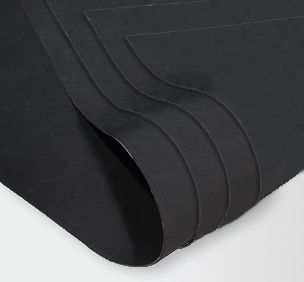Neoprene™ (polychloroprene / CR) is a synthetic rubber, sometimes referred to as polychloroprene or CR (chloroprene rubber). The trade name Neoprene ™ was coined by DuPont when they developed the polymer in the 1930s. It’s now the most recognizable term in many industries.
Neoprene™ rubber is a stable, multipurpose product that provides resistance in a wide variety of environmental and industrial applications. The American Society for Testing and Materials (ASTM) has designated it as Type BC. When used in tough applications, it should be certified by your provider.
Neoprene™ rubber can withstand the stress of physical forces and exhibits very good mechanical strength. This strength makes Neoprene™ an excellent choice for bridge bearing pads as specified by AASHTO (M251) Section 18. Several states have their own specifications for bearing pads, please contact us with specific inquiries.
Neoprene™ rubber is moisture and weather resistant – making it the polymer of choice for wetsuits and diving gear. It’s also an ideal material for tough industrial applications exposed to moisture, sunlight, ozone, oxidation, rain and snow. Neoprene™ rubber is also abrasion resistant, which makes it a great choice for sand and dust.
Neoprene™ rubber exhibits good chemical stability and maintains flexibility over a wide range of temperatures. It can also be compounded to meet low temperature operating ranges. It’s inherently flame resistant and can, with proper testing, be certified to meet FMV-SS-302 standards, a common requirement in the automotive industry.
Additional applications of Neoprene™ rubber include weather and safety stripping in supported, unsupported and extruded applications where fire dangers may be present. Properly compounded Neoprene™ is also widely-used in welding slings and curtains for industrial and military applications.
With a burn point of approximately 260°C (500°F), Neoprene™ has also been used in firemen’s suspenders. Neoprene™ rubber is recognized by ASTM and has a specified resistance to oils. It’s designed not to swell, preventing potential gasket and seal failures.
While many imported products claim to be Neoprene™ rubber – it’s important to purchase from a trusted manufacturer. Some products that claim to be Neoprene™ have been known to dissolve during extended contact with various oils. Make sure you get the real thing, purchase from a high-quality and American-made manufacturer.
Always tell your provider the intended application so the proper selection can be made. Please review your chemical resistance charts for you own evaluation.



